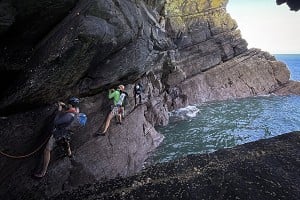
As a tribute to the late Himalayan chronicler Elizabeth Hawley, who died in Kathmandu on 26 January aged 94, Steve Bell has released this excerpt from his forthcoming memoir and sequel to Virgin on Insanity. It describes a meeting that took place in May 2017.
Elizabeth Hawley had never been near a mountain, yet she was a portal to my Himalayan past as much as any other. I was interrogated by her in 1981 when she questioned my ability to tackle a hard first ascent on Annapurna III. 'Aren't you a bit young for this?' She made me feel like a foolish child. Subsequently we met before every expedition I did to Nepal or Tibet, and again afterwards for a debrief. At each meeting she'd take meticulous notes in an oversized writing book; our climb wasn't official until we'd undergone her inquisition and satisfied her that we'd achieved what we'd claimed. As the years went on, I became less daunted by her and we would sometimes meet 'out of office hours' for an informal chat. Now I hoped to see her again - if she was still alive, if she remembered me. I couldn't explain why, there was just a vague feeling that I should.
Bracing myself for the news that she'd passed away I asked a Nepali friend for her phone number. He gave it to me. 'I haven't seen her for ages,' he said.
I found her sitting at a table in her first floor apartment in a forgettable suburb of Kathmandu. She was reading, holding her book against the edge of the table, dowager hunched just beyond the spill of yellow light from a table lamp. The light, itself aged, appeared to be the only colour in the room, and the walls ranged around her like darkened hills beyond a campfire. She didn't move when I knocked on the door and opened it; she was somewhere else, lost in another world.
'Hello Liz.'
Elizabeth Hawley laid her book down slowly but otherwise barely moved. 'Hello,' she said. 'Come in.'
Her voice was exactly as I remembered it - crisp, strident and American - but although recognisable her appearance bore the onslaught of age. She sagged beneath a drab brown cardigan and I could almost see her draining away, her vitality sinking from her face and shoulders down to her midriff that spread across her wooden carver chair.
'Sit down,' she said, her voice seeming to come from a younger person. I did as ordered and took the chair closest to me.
'It's nice to see you, I don't get many visitors. And I can't walk.'
'I'm sorry to hear that, Liz. So what keeps you busy?'
She nudged her book with the brittle twigs of her fingers.
'Reading books mostly,' she said. 'And the papers. Do you know Dorothy Sayers?' One of her twigs brushed against a paperback titled Gaudy Night. 'I've read it about five times. She's so much better than Agatha Christie. With all her books you learn something, not just who the murderer is.'
I asked her a few questions about herself, which set her off on an abridged meander through her life. With her head tilted upon the straining scaffold of her neck, she addressed me as though I was interviewing her. That wasn't my intention, but afterwards I wrote down as much as I could remember because it had an air of significance; we both knew that her recollections would soon be beyond reach. She led me along them, taking short paces that sometimes spanned a decade or more.
'I was born on November 9, 1923. I'm 93 years old. As you get older you remember the very early days, like childhood, the election in 1932. Roosevelt won. He had a beautiful voice; we listened to him on the radio. It was all radios then of course, they were the big thing. I've been in this flat since 1960 when I first moved here. I rent it from a family - two Nepali brothers who own the four buildings in the courtyard. They were little boys when I moved in. They were offered a lot of money for the site by a developer, but they refused. They said they had enough money. They've been very good to me.
'The first expedition I reported on was the American one in 1963. Remarkable man that Thomas Hornbein - he's still around you know.' Leaping across more decades, she mentioned other expeditions. Understandably they had an American bias, and she pronounced her judgement on their leaders; for her, the wholesomeness of their characters counted for more than the greatness of their achievement. She described one successful leader as ' a horrible man'. Perhaps it was this sense of being judged that made her interviewees so nervous; while taking her notes, she stole into their souls.
She reached for a clutch of carefully scissored press-cuttings that were held together by a paperclip. 'Nobody does new routes these days,' she said. 'It's all ego and summit photos.
Did you see this? 85 years old. What was he thinking? Didn't make it of course. Died at base camp.'
'Yes I heard about Sherchan. We met him in Namche Bazaar. He was very frail, there was no way he was going to make it.'
'Well, at least Yuichiro won't have to come back.' She spoke his name like he was an old friend. Old he certainly was: At eighty, he was the oldest person to climb Everest.
'And this.' She raised another cutting from which smiled the clean-cut face of Ueli Steck. 'Why did he fall? His body gives no clues, it was in four pieces. Such a nice man.
'I never met him,' I said. 'I heard he fell off Nuptse while acclimatising. What was he planning to do on Everest?'
'The West Ridge via the Horbein Couloir. Solo.'
'Really? Now that would have been something.'
'I'll say. It hasn't been climbed since 1991.'
I was startled by this information as memory lassoed me, tugging me twenty five years into the past and to my adventure in the Hornbein in 1992, when I was alone, supremely high, a microscopic glimmer of life upon Everest's deadly breast, and how easily I could have still been there.
Liz's voice brought me back. 'Ueli's left a problem by dying on Nuptse because he didn't have a permit for it.'
No permit. Another memory roused from its fitful sleep.
'I've got to tell you Liz, apart from raising the dead the one thing I wish I could change is the fall-out we had over our Everest Permit. It was such a bad time. You must remember it?'
'Yes, I do.'
I waited for Liz to say something else, but she held my gaze while I scoured the dark pits of her eyes. She gave me nothing, she granted me no relief.
It was more comfortable in the present, even if it was maudlin.
'So that's two fatalities this season', I said. 'Eight more to go according to Reinhold Messner.'
'Statistically, he's probably right. There's a lot of foolishness going on now.'
I looked at Elizabeth Hawley's little collection of press cuttings and wondered whose demise would be added to it, and whether their mortal sin would be foolishness or something else. But what else was there? Wasn't it all foolishness? The redoubtable Ms Hawley had met the members of every Everest expedition for half a century and cast judgement on each, calling them remarkable, lovely, horrible. But by what scale did she measure foolishness? Were Hornbein and Unsoeld foolish when they set off on their one-way foray into the unknown confines of the Hornbein Couloir? Was Stephen Venables foolish for reaching the summit so late that he was forced to spend a night in the open? As did Doug Scott and Dougal Haston on their first ascent of the South West Face - were they foolish too? No, they weren't foolish, for they'd survived; living against the odds had made them all heroes. Now, against the odds, people were managing to die.
I stood up to leave and offered my hand. Liz took it, no doubt expecting us to part with a formal handshake. I felt her birdlike bones loosely contained by paper thin skin, and thought of all the hands she'd shaken during her long life, the hands of my mountaineering heroes, some of whom had never come back. For more than half a century she counted them out and she counted them back, from Thomas Hornbein to Ueli Steck. Through her work, she marked the beginning and the end of every Himalayan endeavour, and at that moment I felt connected to all of them, via the conduit of this little old lady who sat at the centre of a web of heroism and tragedy. I was moved. A handshake seemed appallingly inadequate, so I bent forwards, as if making a bow, and kissed her hand. Miss Elizabeth Hawley said nothing. Turning towards her pool of orange light, she took back her hand and reached across the press cuttings for her book, pulled it towards her and drifted back into the pages of Gaudy Night.
Elizabeth Hawley. 1923 - 2018
- DESTINATION GUIDE: Arapiles 14 Jan, 2009
- Arapiles Selected Climbs 6 Oct, 2008

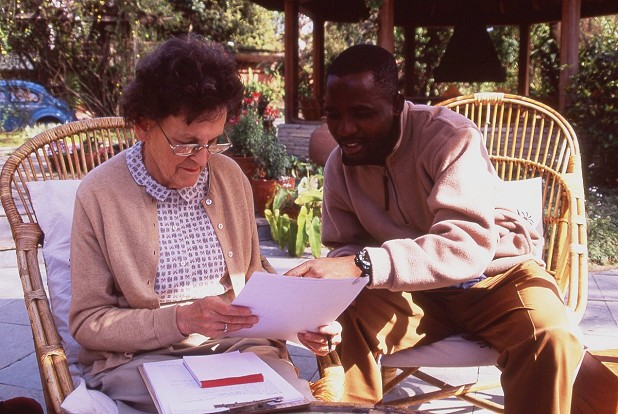
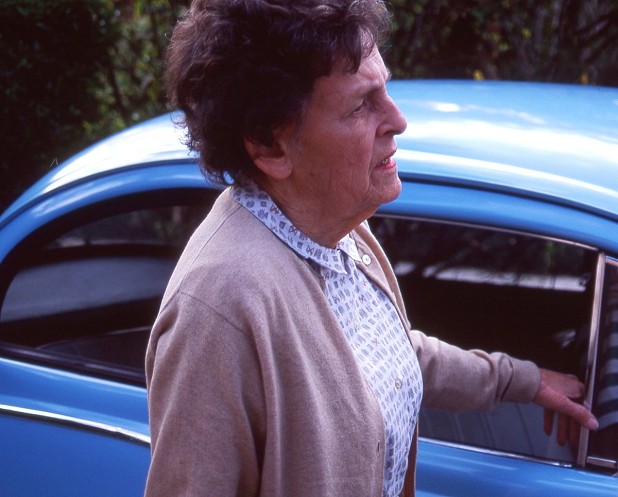

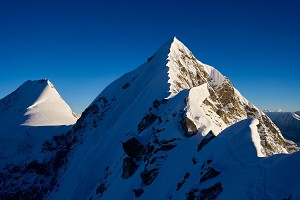
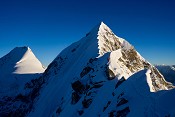
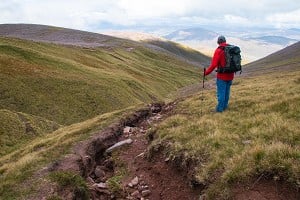
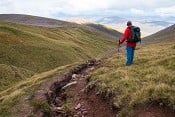


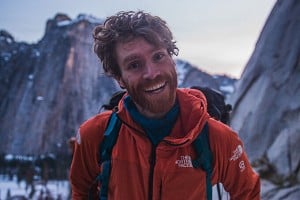
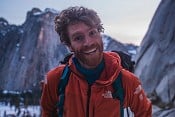




Comments
Wonderful!!!
'Through her work, she marked the beginning and the end of every Himalayan endeavour, and at that moment I felt connected to all of them, via the conduit of this little old lady who sat at the centre of a web of heroism and tragedy. I was moved. A handshake seemed appallingly inadequate, so I bent forwards, as if making a bow, and kissed her hand. Miss Elizabeth Hawley said nothing.'
Mick
What a beautiful tribute.
Absolutely charming that Steve and beautifully written, well done.
Andy.
That was lovely to read, but didn't tell me much. I'd never heard of Elizabeth Hawley so knew nothing about her. I don't know much more now.
If this is anything to go by the Steve's memoir will be excellent.